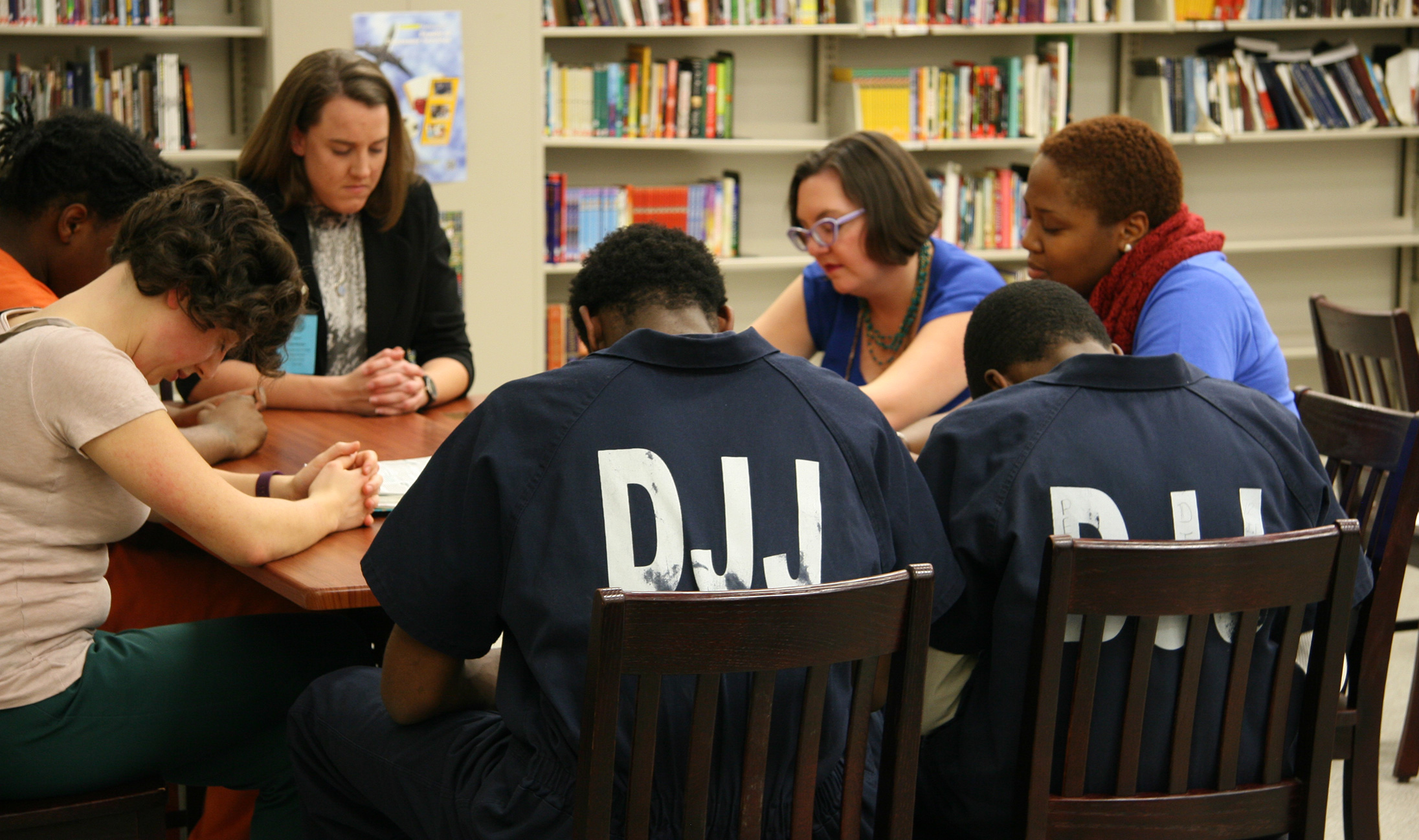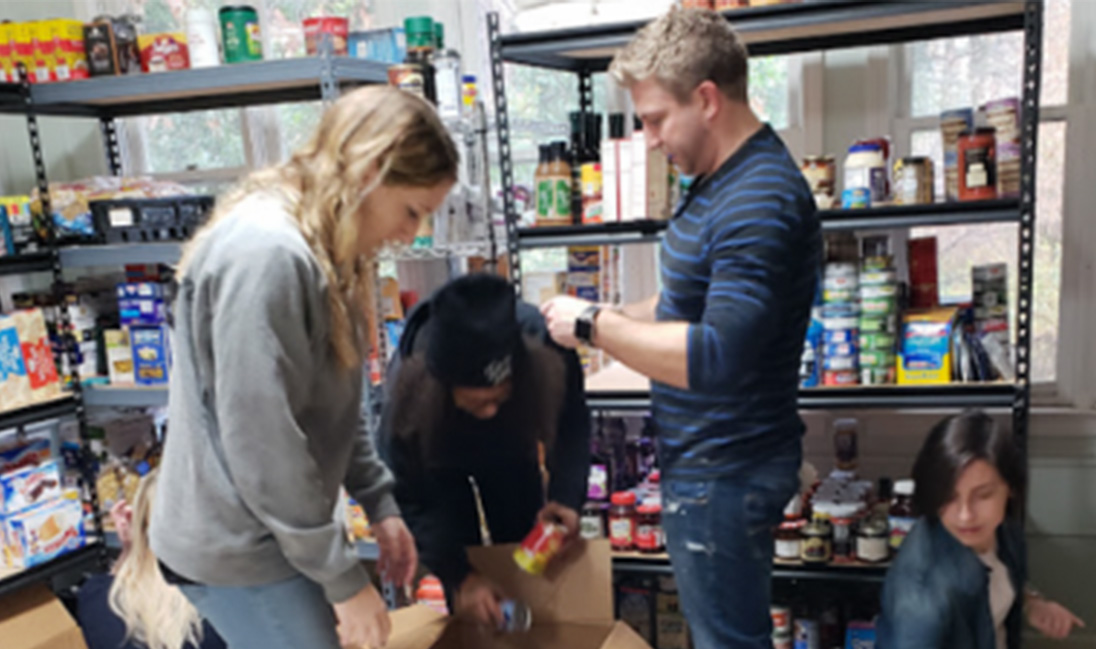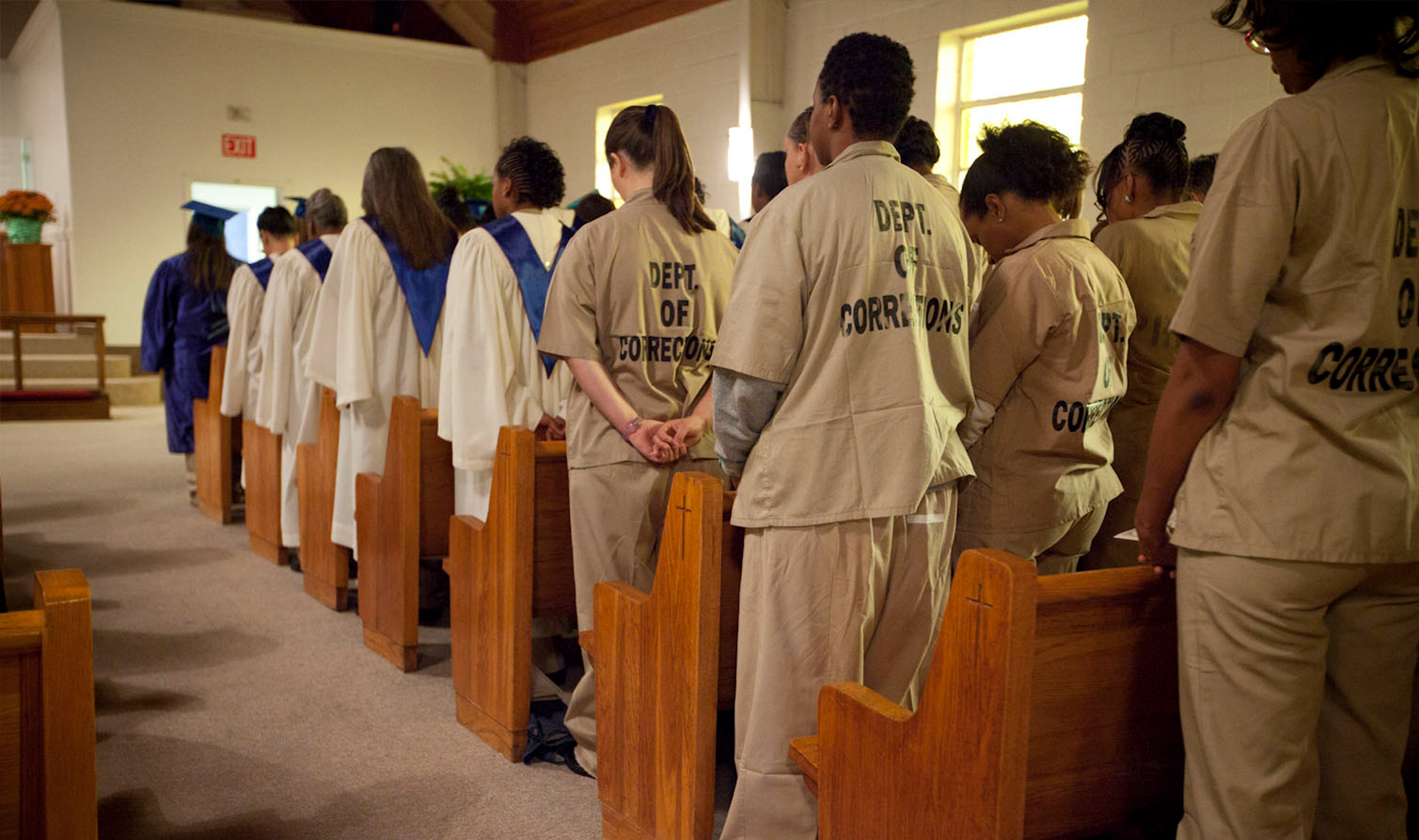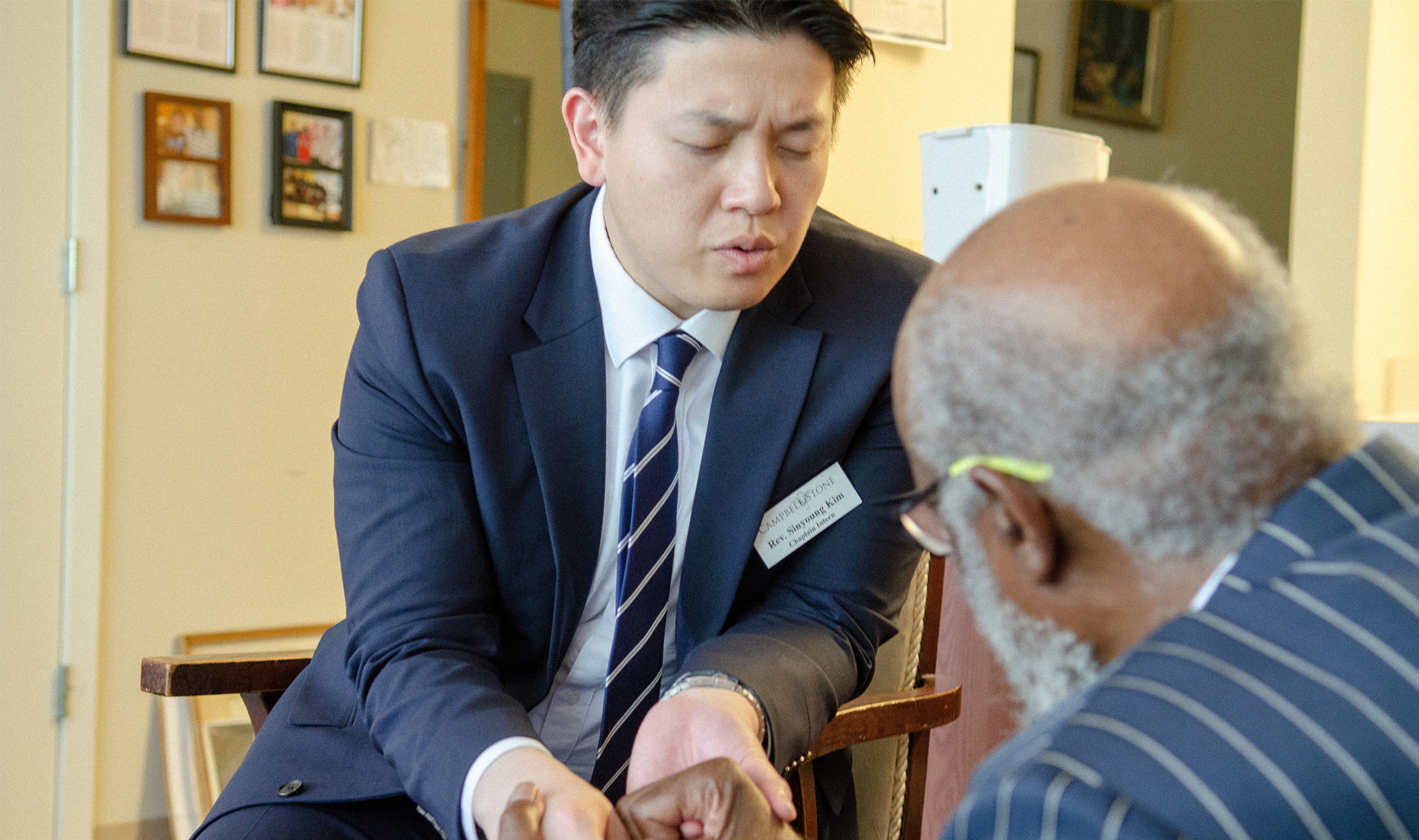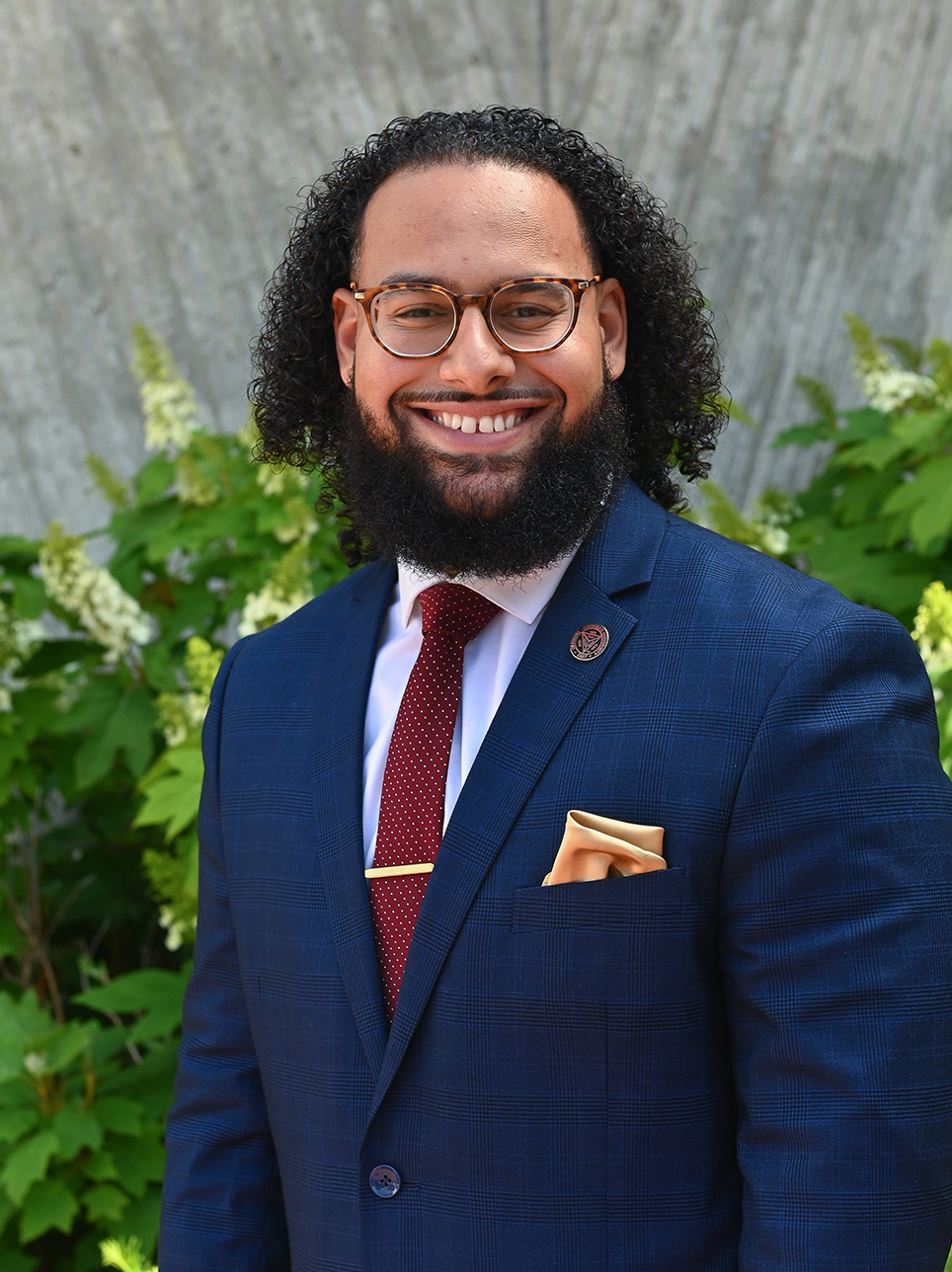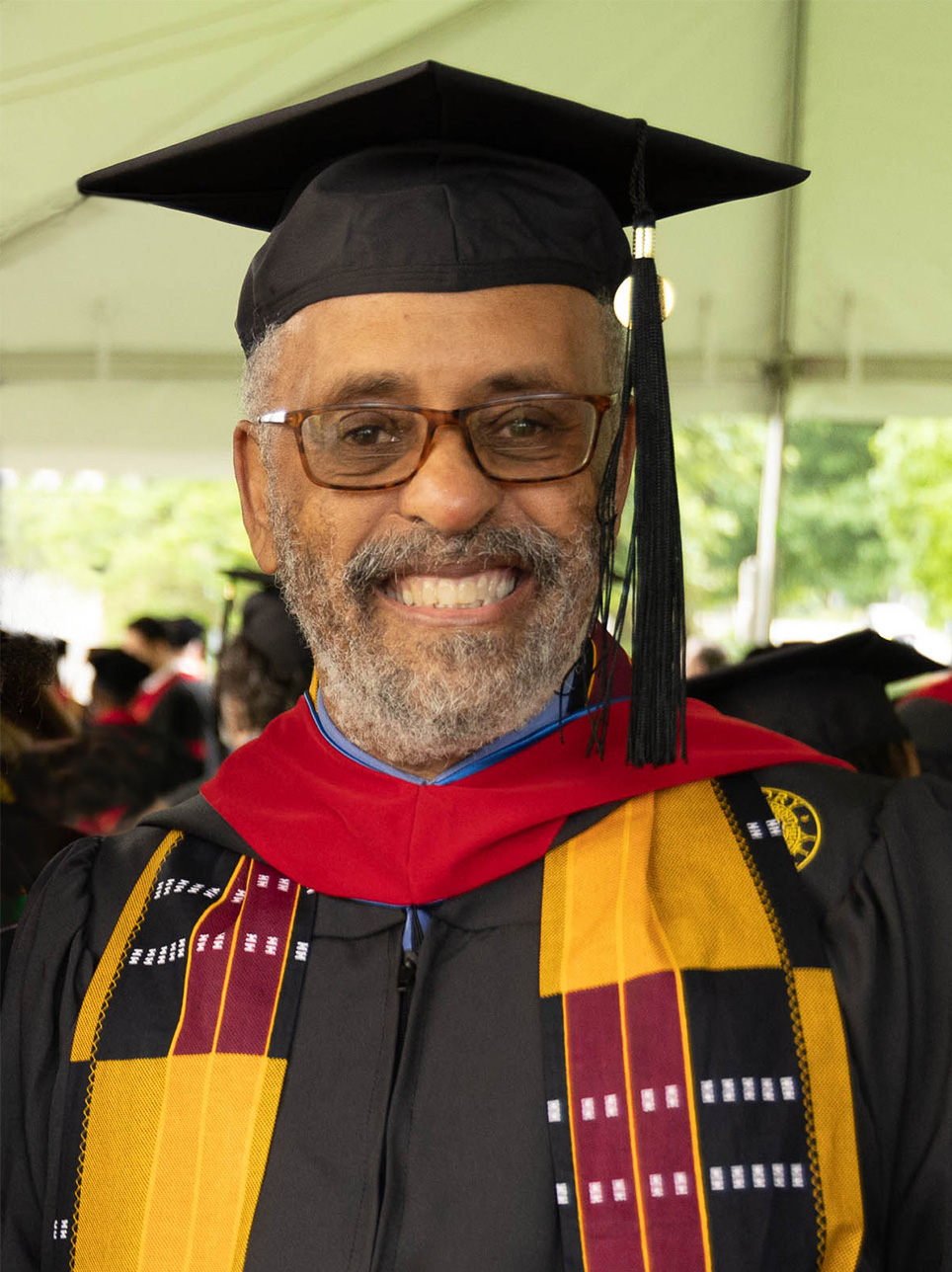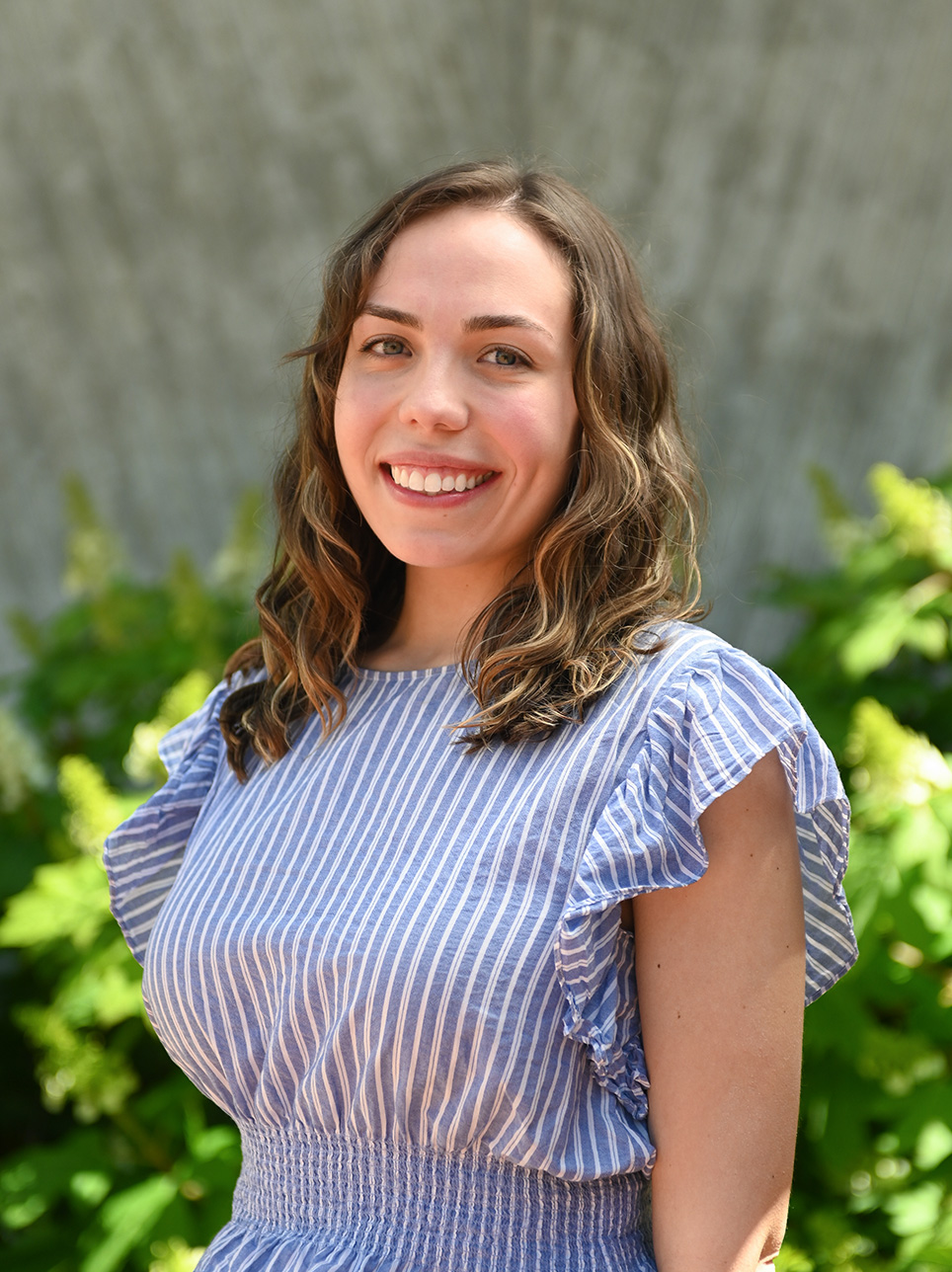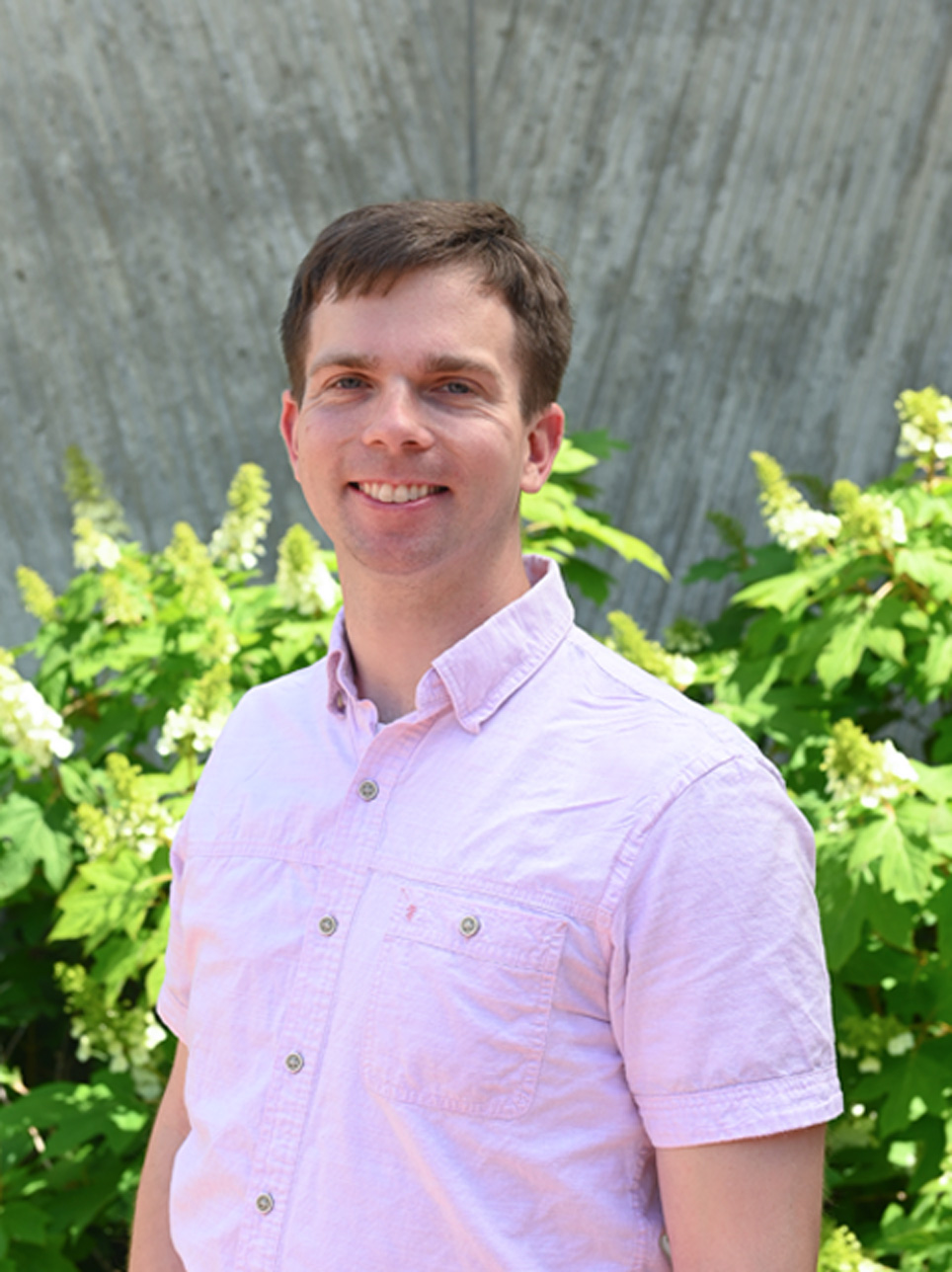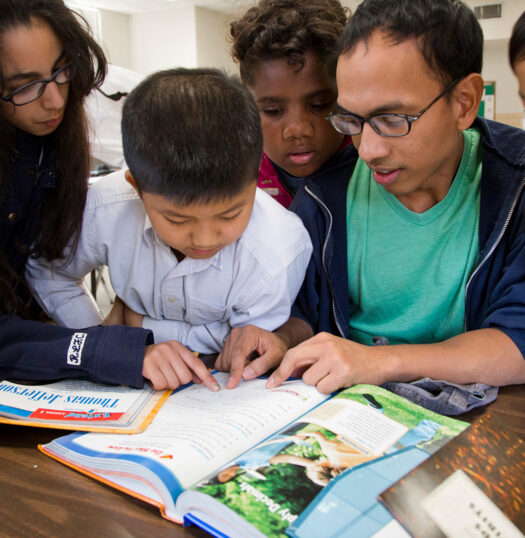
The Contextual Education I program gives MDiv students an opportunity to explore a wide range of ministries, contexts, social issues, and pastoral relationships beyond congregational settings.
In this first year of Con Ed, you’ll serve in a social service or clinical setting, where you’ll be introduced to frontline ministry in various forms, like working with low-income families to meet their housing and food needs, building relationships with newly arrived refugees, or serving as a chaplain in a prison, medical center, or with the elder population.
At the end of your first year of Con Ed, you will have gained:
- The ability to integrate theological concepts with ministry practice
- Broadened ideas of vocational identity and calling
- An expanded notion of church and of ministry
- Skills for leadership in ministries of justice and reconciliation
If you are in the Teaching Parish or the Episcopal and Anglican Studies program, your Con Ed placement may be different from what’s described here. Please see the pages on Teaching Parish and Episcopal and Anglican Studies Con Ed for descriptions of those equally rich Contextual Education programs.
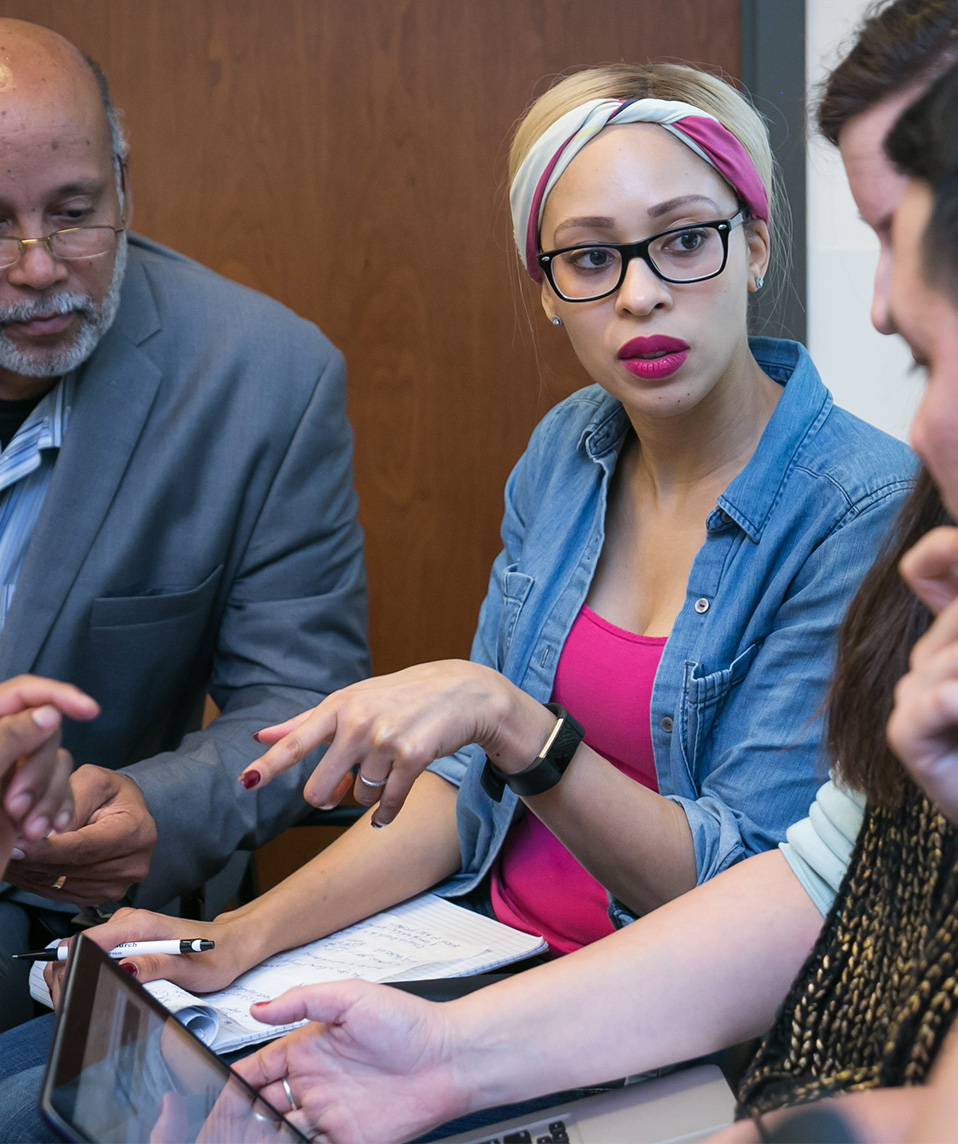
Connect. Reflect. Integrate.
Con Ed is deep learning that emerges from experience, reflection, and community. In addition to hands-on ministry experience, you’ll get a chance to reflect on that experience with peers, plus the guidance of a seasoned supervisor and faculty member. Each week, you’ll spend four hours working at your site and 90 minutes in a reflection group in the fall or 2 hours in an integrative seminar in the spring.
Choosing a Con Ed I Site
There are several factors to consider when choosing your site for Con Ed I.
First, if you’re a residential student, you’ll choose from five partner sites in the metro Atlanta area. If you’re a hybrid student, you’ll identify a clinical or social ministry setting in your own geographical area in conversation with the Office of Contextual Education. Hybrid students will be grouped into themed cohorts for their reflection groups and integrative seminars. Your site placement stays the same for the academic year.
As you consider which site would work best for you, think about which contexts and experiences will allow you to explore your vocational aims and develop skills for ministry. This won’t be your only opportunity to gain practical ministry experience while at Candler, but it’s a great opportunity to dive in and try something new. And don’t forget to factor in the logistics of getting to and from the site as well as the time the reflection group or integrative seminar meets.
Con Ed I Sites for Residential Students
Lee Arrendale State Prison is the largest women’s prison in Georgia and is located an hour north of Atlanta. Students provide pastoral care to incarcerated women, support chaplaincy programs, and assist the chaplain with worship.
Campbell-Stone Apartments provides affordable housing for older adults, with a location in Buckhead (just north of Midtown Atlanta) and another in Sandy Springs (20 miles north of Emory). Students work to develop spiritual care and community programming for residents, including pastoral care, worship opportunities, and group activities.
Regional Youth Detention Centers (RYDCs) are secure short-term centers operated by the Georgia Department of Juvenile Justice (DJJ). RYDCs are for youths awaiting trial in Juvenile or Superior Court, or awaiting a community placement more suitable for their needs. As chaplain interns, students assist in establishing hope, a commitment to community, and the duty to care by supporting positive change through youth accountability and responsible youth leadership and service.
New American Pathways is an Atlanta-based nonprofit with the mission of helping refugees and Georgia thrive. Students can choose between two programs: The Bright Futures After School Program, serving elementary school children, and The English at Home program, offering English as a Second Language (ESL) tutoring support to refugees.
Toco Hills Community Alliance is a group of faith communities and others working together to help those in need in DeKalb and northeast Atlanta. Con Ed I interns function in a variety of roles, including assisting with packing and distributing groceries, greeting and intake for those receiving services, working directly with volunteers, as well as assisting in locating or developing additional resources.
Con Ed I Cohorts for Hybrid Students
Students in the Justice, Advocacy, and Movement Building Cohort will work four hours each week with organizations and ministries in their local communities that support social and economic development, social justice, and community flourishing through organizing and advocacy initiatives. This work may focus on any of a wide range of social justice issues, including economic justice and labor issues, racial justice concerns, health access, educational equity, environmental and climate justice, or other issues of significance to local or regional well-being.
Students in the Immigrant and Refugee Accompaniment Cohort will work with organizations and ministries in their local communities that provide support for and stand in solidarity with migrants. This work may take a variety of forms, including initiatives that address the immediate material needs of refugee and immigrant communities; support communities through programs or events (such as after-school programs); or affirm immigrants and refugees in exercising their rights through political or social advocacy.
Students in the Food Justice and Sustainability Cohort will work with organizations and ministries in their local communities that address hunger, expand access to nutritious food, build just and sustainable food systems, and care for creation.
Students in the Care in Community Cohort will work four hours each week with organizations and ministries in their local settings that provide care to individuals and groups and cultivate or support wider networks of care, with particular attention to individuals and populations who are vulnerable or in crisis.
More about Con Ed I Enrollment
- Stewards of Children Training
- CE551a or CE551HYBa. Contextual Education I Site Reflection (first semester only; 3 hours)
- CE551b or CE551HYBb. Contextual Education I Integrative Seminar (second semester only; 3 hours)
Reflection Group and Integrative Seminar
In the first semester, students meet weekly for a 90-minute Reflection Group led by an experience site or cohort supervisor (CE551A or CE551HYBA, 3 hours). In the spring semester, students meet weekly with a faculty member and the site or cohort supervisor for an Integrative Seminar that brings the experiential learning of the site into conversation with the wider seminary curriculum (CE551551b or CE551HYBb, 3 hours). As part of this coursework, Con Ed I students meet for monthly plenary sessions focused on core skills for ministry.
Students will work four hours per week at the same Contextual Education I site throughout both semesters.
Completion Requirements
Upon successful completion of the site work, the reflection group, the integrative seminar, and Con Ed Plenary workshops, a student receives the six (6) hours credit for Contextual Education I. Note: Students receive an “In Progress” (IP) grade for the fall semester. Only when both semesters have been satisfactorily completed will a satisfactory (S) grade be awarded for each semester.
For students who entered prior to Fall 2023
In addition to the requirements described above, students are required to complete a Contextualized Introduction to Pastoral Care (PC501CE) concurrently with their enrollment in Con Ed I.
Incoming Residential MDiv students will choose a site for their Contextual Education I placement from the following list. The webpage for each individual Con Ed I site includes information about the type of work students are engaged in, the days and times that work takes place, and any additional site requirements.
Instructions on how to enroll will be sent to all incoming students in the summer before their first semester. Each site hosts a limited number of Candler students, and enrollment for sites and corresponding reflection groups (held in the fall) will close once they reach capacity.
Contextual Education I students in the Hybrid MDiv program will identify a clinical or social ministry setting within their own geographical region in conversation with the Office of Contextual Education. Students serve four hours each week at these sites throughout the academic year and meet regularly with a site mentor to guide their work.
Hybrid Con Ed I Students gather weekly with a thematic cohort for reflection with peers, supervisors, and faculty.
Con Ed I Sites and Site Mentors are essential to the Hybrid Contextual Education I Program, and their participation provides students with opportunities to experience a broad range of ministry settings. If you would like to become a Hybrid Con Ed I Site or Site Mentor, or if you are a student beginning your search for a Hybrid Con Ed I Site, please review our expectations and requirements.
International students who qualify for Curricular Practical Training (CPT) may enroll in Contextual Education I in their first year of the MDiv program. International students must work with the Office of Contextual Education to receive authorization prior to their first visit to the Contextual Education I site. International students should contact the Office of Contextual Education at candlerconed@emory.edu or 404-727-4178.
For more information, review the Contextual Education Handbook and the Office of International Student and Scholar Services (ISSS).


